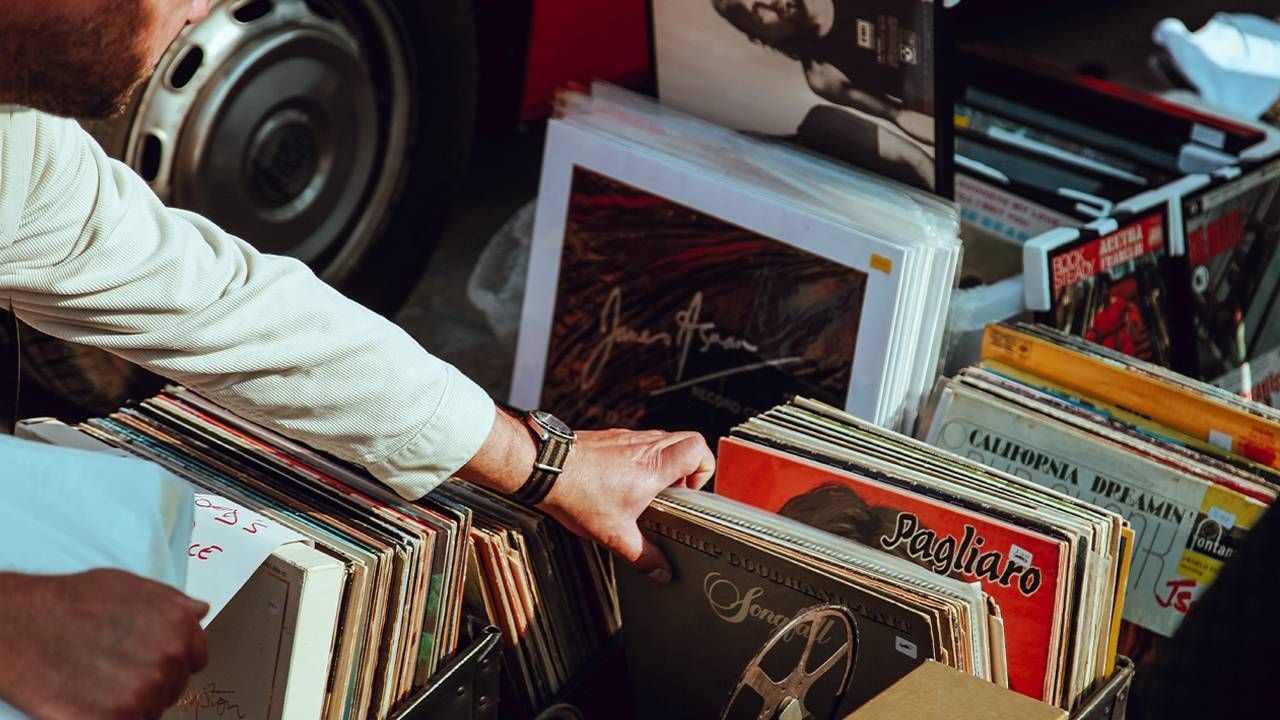Smart Ways to Sell Your Unwanted Items
Downsizing? Here's how to have fewer items to move and earn money from getting rid of your stuff
When Mary Potter Kenyon, then 58, was offered a job an hour away from her home in Manchester, Iowa, she knew it was time to downsize. Her husband had passed away, only one of her eight kids lived with her and she didn't relish the idea of commuting two hours a day. It was time to move. She found a two-bedroom house near her new job and listed her four-bedroom home for sale. Then she began the process of decluttering.

For the next two months, Potter Kenyon sold her furniture and other items on Facebook Marketplace, held two tag sales, and sold items through consignment shops. By the time she was done, not only did she have significantly fewer items to move to her new home, but she also earned over $2,000.
After this experience Potter Kenyon was inspired to write the book, "Called to Be Creative," since getting rid of her clutter helped her to feel more creative.
Pictures and Descriptions Matter
So how can you earn money and declutter at the same time? Experts share their tips for selling used items on Facebook Marketplace or Craigslist.
"The fun thing about reselling online is that you never know what people will be interested in. I once sold a mop."
"The fun thing about reselling online is that you never know what people will be interested in. I once sold a mop," says Alex Davis, co-creator of the lifestyle blog, "Ryan and Alex Duo Life."
The saying goes, "never judge a book by its cover" but people do judge a book by its cover. The same theory can be applied to the picture you use to sell your item — it's important to take a good one. If the shot is blurry, has lots of clutter in the background or not taken at a good angle, then people are going to scroll right past it and move on to the next item.
A lot of the selling process relies on trust, so it's important to be honest in the description about any known defects or issues with the item. This will also save your time and the buyer's time in relation to a potential sale.
Price The Items Properly
List everything you can such as the brand, year purchased and size or dimensions. You can look up the item on a website such as Amazon or Target and use some of the same descriptors they are using. Keywords are important when someone is searching for the item, so use words that will show up in a search.
Of course, the price of the item is important, says Andrea Woroch, a nationally recognized family finance expert.
So how do you find the right price? You can search the site you are going to sell on and see how similar items are priced. Another good rule of thumb is to price the item for half of what you paid for it when it was new.
Be Willing to Negotiate
Most people who buy used items are looking for a deal. One way they will feel like they got a deal is if they can pay less than the price that's listed. With that in mind, you may want to list your price a little bit higher than what you want to actually sell the item for. If you don't want to negotiate, you can list the item as a firm price.
"Explain in the description if you are firm on price or open to negotiations so you don't waste your time or your buyer's time," says Woroch.
Items That Sell Well and Those That Don't
Items that sell well can vary by location, but in general, smaller furniture in good condition like a bureau or end table sells well. Popular electronics and video games can also sell well, along with home repair tools that everyone needs like a hammer or a wrench.
"Things that may be sold out in stores sell well. During the pandemic you couldn't get your hands on any bikes or camping stuff. That would've been a great time to sell those items since everyone was looking to buy and would pay more," says Woroch.
Clothing can be tough to sell. "Selling clothes often works best in a garage sale. Or, if you want to sell the items online, make it a 'grab bag' where someone can pick up a whole bag of size medium clothes or size 6 shoes. They have to take the whole bag, but get a big discount," says Davis.
Selling Items Safely and Frustrating Situations
In general, most people that buy used items are honest and just want to buy the item. But there are some people that can cause problems, are dishonest or are criminals.
"Explain in the description if you are firm on price or open to negotiations so you don't waste your time or your buyer's time."
You can meet the person in a populated place, such as a store parking lot with video cameras, to avoid having strangers come to your home. If you do have a negative experience, report it to the site you sold your item on. And if you experience a criminal interaction, report it to your local police department.
Selling your used items is a great way to earn money and get rid of unwanted items at the same time. But there are frustrations that come along with the process. Sometimes people will not show up for their scheduled time to buy the item. Others will ask lots of questions, request additional pictures, and then not buy the item.
If someone asks you to hold the item, you should only do so if they are willing to pay for the item upfront. One way that they can do this is through PayPal or Venmo. You can also offer this as an option and then leave the item in an agreed upon place so that you don't have to be home or interact with the person to make the sale.
"If you can, arrange for contactless pick up of items. If you have a front porch or backyard, use it and ask for the buyers to put the money under the doormat. Over the years, my husband and I have sold hundreds of items this way. It keeps it simple, and we have never had anyone not pay us," says Davis.
If Your Items Don't Sell, Donate Them
So what do you do with items that don't sell? You could try listing them for "free" on sites like Facebook Marketplace or Craigslist. You would be surprised at what people are willing to take if it is free — everything from a broken grill to a wood pallet.
You can also donate your items to charities and often they will even come to your house to pick them up.
Some charities that accept used items:
Vietnam Veterans of America
Brother/Big Sister Foundation, Inc.
The Salvation Army International
Habitat for Humanity International
Goodwill
You can also list your items for free on these sites:
Freecycle.org
Nextdoor
OfferUp
BuyNothing


